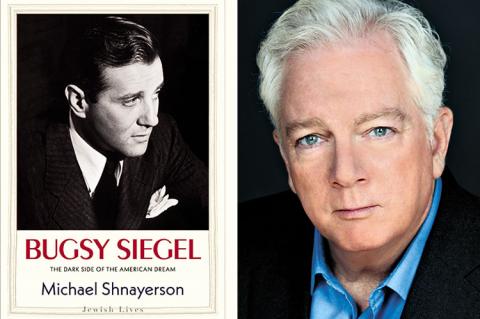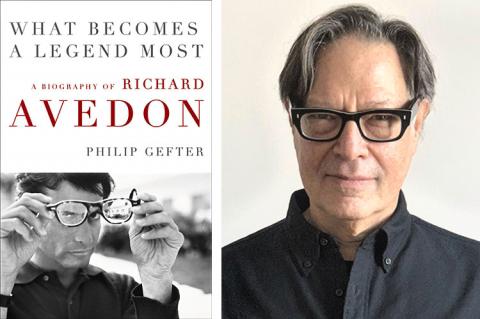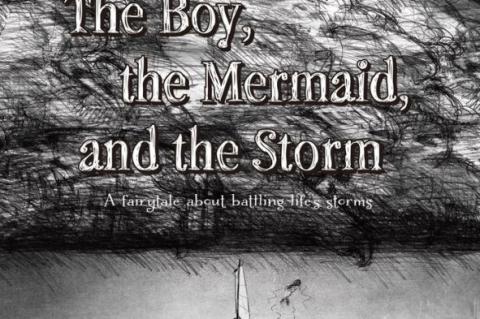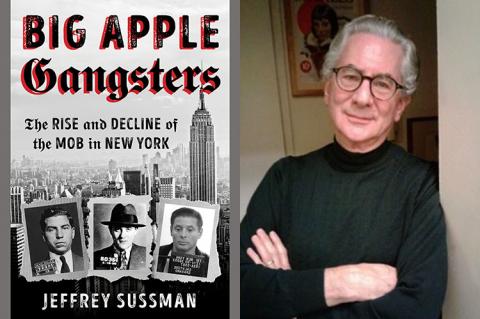The architecture critic Paul Goldberger lays out how one man, David Walentas, saw the potential in a derelict warehouse district on the Brooklyn waterfront. And the desirable enclave Dumbo was born.
Books
 Darkness and Light
Darkness and LightTomi Ungerer’s final children’s book follows a flight through a harrowing dystopia, while Kate McMullan celebrates spring and Katharine Holabird just celebrates.
 Splenetically Yours
Splenetically YoursIt would be hard to imagine a more pugnacious epistolary sampling than “Speaking in an Empty Room: The Collected Letters of John Sanford,” who was an exacting writer’s writer and a veteran of Hollywood blacklisting.
 Discovered by Chance
Discovered by ChanceJennet Conant’s “The Great Secret” is about many things: the chaotic nature of war, the subterfuge of governments, the randomness of scientific discovery, the story of one unassuming young American doctor.
An East Hamptoner looks back on an encounter with the writer, recently given new life in a PBS documentary.
 A Most Dangerous Drama
A Most Dangerous DramaExpressions of guilt pervade Bina Bernard’s wrenching debut novel about a Polish Jewish couple’s desperate struggle to protect their children during the Holocaust.
 From Suffering Into Art
From Suffering Into ArtJill Bialosky’s latest poetry collection, “Asylum,” offers a pilgrimage of sorts in five sections through the shock, grief, guilt, and eventual acceptance occasioned by a sibling’s suicide.
 Loving Helen
Loving HelenAlexander Nemerov’s “Fierce Poise” captures the first decade of Helen Frankenthaler’s career with both a fly-on-the-wall intimacy and a great understanding of her work and what made her tick.
 The Greatest Discovery?
The Greatest Discovery? Walter Isaacson reveals in clear, simple, factual, and fascinating detail how Jennifer Doudna spearheaded the invention of the revolutionary gene-editing tool Crispr.
 An Art History Murder Mystery
An Art History Murder MysteryThe real mixes with the imaginary, Thomas Hart Benton with the young sleuths hunting his murderer, in Helen Harrison’s latest, set in 1967 New York.
 The Call of Submission
The Call of SubmissionIn Daphne Merkin's novel, Judith Stone is a book editor in 1990s Manhattan in a relationship of “erotic compliance” and “self-abandon” — not erotica, but literary erotic psychology.
 Bad Boyfriend
Bad Boyfriend Take an acupuncturist, her mysterious love interest, a corpse, Stony Brook detectives, a sadistic villain, and mix well for the second thriller from Greg Wands and Elizabeth Keenan.
 King of the Hotheads
King of the Hotheads Bugsy Siegel was lavishly rewarded for his crimes, we learn in Michael Shnayerson’s new biography, although money didn't really interest him. He wanted fame and respect more, but his impulsive nature gave him a dark reputation he never escaped.
 A Tragedy of Ambition
A Tragedy of AmbitionIn “What Becomes a Legend Most,” Philip Gefter shows Richard Avedon to be an eminent fashion photographer driven to be recognized as a great artist but met with disdain from the establishment.
 Life Lessons
Life LessonsThree children’s book authors from hereabouts, Billy Baldwin, Susan Verde, and Kori Peters, boldly go where parents often neglect to tread, broaching the topics of perseverance, gratitude, and the social good.
 Bang, Bang, You’re Dead
Bang, Bang, You’re DeadThe characters in Jeffrey Sussman’s “Big Apple Gangsters” are occupied with bootlegging, garbage collecting, cement mixing, heroin dealing, and killing, mainly each other. The action extends to Mussolini, Batista, J. Edgar Hoover, Joe DiMaggio, and, the coup de grace, Rudy Giuliani.
 The Brains of the Family
The Brains of the Family In her gripping first novel, “A Most English Princess,” Clare McHugh has seized on the fact that Vicky, the eldest daughter of Queen Victoria, was surely the smartest and most capable of her siblings. Her claim to England’s throne, however, was dashed by her younger brother.
 A Journey Inward
A Journey Inward “Being Ram Das” is the memoir of the former Richard Alpert of Boston, whose remarkable journey took him from elite universities, high social status, and hallucinogenic drug use to points near and very far, including, in 1967, to the feet of a blanketed man in the Himalayas.
 The Poet Who Knew Everyone
The Poet Who Knew Everyone This collection of Tony Towle’s poems, itself a work of art, contains numerous photos, most black and white by Hans Namuth. Through this lens of a particular time and place in the 1960s, a world opens up, offering a glimpse at a specific historical moment.
 The 10 Best Books of One Tough Year
The 10 Best Books of One Tough YearKurt Wenzel, novelist, book and theater critic, and the best-read man we know, picks ’em.
 Literature’s Knight-Errant
Literature’s Knight-ErrantJohn Steinbeck couldn’t stop writing. Couldn’t stop rushing out to right injustices. He was a loner who never seemed to be lonely, William Souder writes in “Mad at the World,” his new biography.
 A Hunt for Holiday Books
A Hunt for Holiday BooksSome are surprising; others, considering the times, probably predictable, but here, for your reading pleasure and inspiration, are some of the most popular books we on the East End are giving each other this holiday season.
 Notes of a Stand-Up Comic
Notes of a Stand-Up ComicOrganized chronologically over the past five decades, Jerry Seinfeld’s “Is This Anything?” is both a history of American habits and preoccupations and also an autobiographical record of the thoughts of an analytically minded American male as he progressed from his 20s to his 60s.
New from local authors: Former ad man Lyle Greenfield brings art world psychological suspense, 1980s-style, and Kay Tobler Liss takes on Montauk in the off-season, where a Native American woman fends off a land grab.
 The Long Goodbye
The Long Goodbye“Inside Story” is utterly saturated with death. Paradoxically, it is also one of the liveliest and most entertaining books from Martin Amis since his 2000 memoir, “Experience.”
 The Wages of the Present
The Wages of the PresentThe new Pushcart anthology of the best of the small presses is heavy on sincerity, light on cynicism; heavy on depth of feeling, light on cheap shots.
 A Moveable Feast
A Moveable Feast“One Last Lunch,” Erica Heller’s colorful compendium of essays, gives a number of writers the chance to share a repast with their deceased friends, lovers, colleagues, occasional alter egos, and notably fathers, from Saul Bellow to John Cheever to, of course, Joseph Heller.
 A Failure of Justice
A Failure of JusticeIn “On Account of Race,” Lawrence Goldstone traces Supreme Court decisions regarding voting rights from the Constitutional Convention of 1787 to the present. It is a book that challenges your faith in the independence and fairness of the high court.
 To the Afterlife
To the AfterlifeGrace Schulman casts her steady eye on mortality in her new collection of poems, “The Marble Bed.” Or, more accurately, she casts her eye on the things around her and they describe mortality back to her.
 The Credibility Gap
The Credibility GapDonald Trump is by far the most egregious liar ever to reside in the White House, but he is hardly the first, writes Eric Alterman in “Lying in State: Why Presidents Lie — and Why Trump Is Worse,” a kind of American history textbook for our unsettled times.

